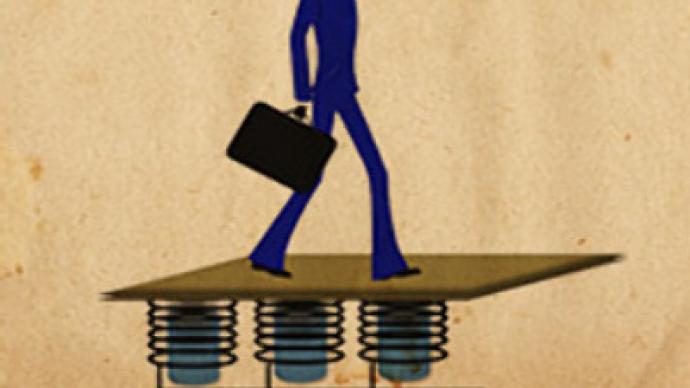Good vibrations – a new power source

Kinetic energy from everyday movements like walking and dancing are being turned into electricity in a phenomenon known as “power harvesting”. Using energy provided by humans and turning it into new sources of power may
In 1993 Trevor Baylis invented the wind up radio, which generated power from contact with humans.
But increasingly sophisticated and effective ways of converting mechanical energy into electricity are being developed and have been labeled as “power harvesting”.
Scientists are creating tiny generators that can transmit the energy from everyday movements into electricity which can then provide power for remote installations.
Harvesting in action
The newer versions of harvesting are being designed to have a big impact on modern living. Knee joints, dance floors and helicopter frames have all been subjected to “power harvesting” tests and researchers believe that devices like ipods and mobile phones could soon be powered in such a way.
Dr Steve Beeby from Southampton University is a pioneering figure in the world of power harvesting and has already fitted harvesters at oil refineries. The vibrations from the machinery operate devices which generate electricity for sensors. The sensors provide data which shows if the refinery is working productively and safely.
Beeby is currently aiming at fitting a similar system in airplanes. By placing power harvesters to the frames of aircraft, embedded sensors can provide readings about the mental stress of those travelling.
Medical benefits
Power harvesters could also prove an invaluable asset in the world of medicine. Dr Paul Mitchell from Imperial College in London is currently developing a pacemaker that is kept charged by the beating of the patient’s heart.
Power harvesters could therefore revolutionise cardiology. Dr Mitchell said: “Such a device could mean that pacemaker replacement operations – which are typically carried out every six or seven years – might be a thing of the past”.
But the supremacy of power harvesters does not stop at achieving medical breakthroughs, recording valuable data and making oil refineries less hazardous and more economical.
Endless possibilities
Fashionable bars are also catching on to the benefits of power harvesters. London’s trendy Bar Surya has installed crystalline harvesters under the dance floor which create tiny pulses of energy by the feet of dancers. The astute London bar uses the electricity created by this method to offset the bar’s utility bills.
On a larger scale, if underground harvesters were placed in rail and tube stations, they could provide a substantial amount of electricity and supplement electricity being generated from power plants.
But perhaps the most exciting potential role of this innovative way of producing energy is that US and UK military researchers are investigating the possibilities of inserting energy harvesters into the boots of soldiers. The energy provided would then supply invaluable power in remote and dangerous locations.
Converting mechanical energy into electrical energy may have come along way since Trevor Baylis watched a programme about AIDS in Africa and invented the clockwork radio as a means of communication in poorer countries without needing to rely on costly batteries.
If these technologies continue to be developed and exploited then power harvesters could arguably be considered as the ultimate source of renewable energy and may prove priceless to our planet’s survival.
Gabrielle Pickard for RT












